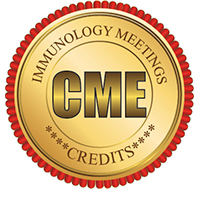
Eveline Ndii Kalomo
Wichita State University, USA
Title: To Tell or Not Tell: Dimensions of Disclosure to Children with HIV in the Zambezi Region of Northern Namibia
Biography
Biography: Eveline Ndii Kalomo
Abstract
Statement of the Problem: Prenatally HIV-infected children are surviving due to improvements in antiretroviral treatment (ART). With the advent of ART, the quality of life and the survival rates of children living with HIV have significantly improved allowing these children to live into adolescence and well into adulthood. Despite the significant decrease in the morbidity and mortality of children, a disclosure issue is increasingly becoming a concern for policymakers, health professionals, and family members. Studies report that HIV disclosure is associated with increased self-esteem, lower depressive symptoms, and improved adherence to treatment. However, despite known benefits of disclosure, researchers suggest that HIV-infected children, do not know they are HIV-infected. Scholars, suggest that this practice may be attributed to parental fears, social stigma and discrimination, and lack of caregivers’ knowledge with respect to when and how to approach disclosure questions. However, limited research has examined this phenomenon in Namibia, one of the top five countries in the world with the highest AIDS prevalence rates.
Methodology & Conceptual Framework: Applying the ecological systems theory, this cross-sectional exploratory study conducted face-to-face interviews with 83 caregiver-child dyads of HIV-affected children aged 6-18.
Findings: The mean age of caregivers was 37.1 [range 15-93, SD=11.9]. Majority were female (87.5%). Over half HIV-infected children (55.7%) were between the ages 6 to 10 years old. More than two-thirds of children (67.1%) had their HIV diagnosis disclosed to them. Care givers (42.2%) believed it was very important to disclose the HIV status to children.
Conclusions & Recommendations: Health professionals and social workers should offer ongoing support to caregivers in the disclosure process so that children are sensitively and effectively informed of their HIV status. Greater practitioner-caregiver involvement is needed to ensure that caregivers have the adequate supports and communication skills to initiate and sustain the disclose process among adolescents.

